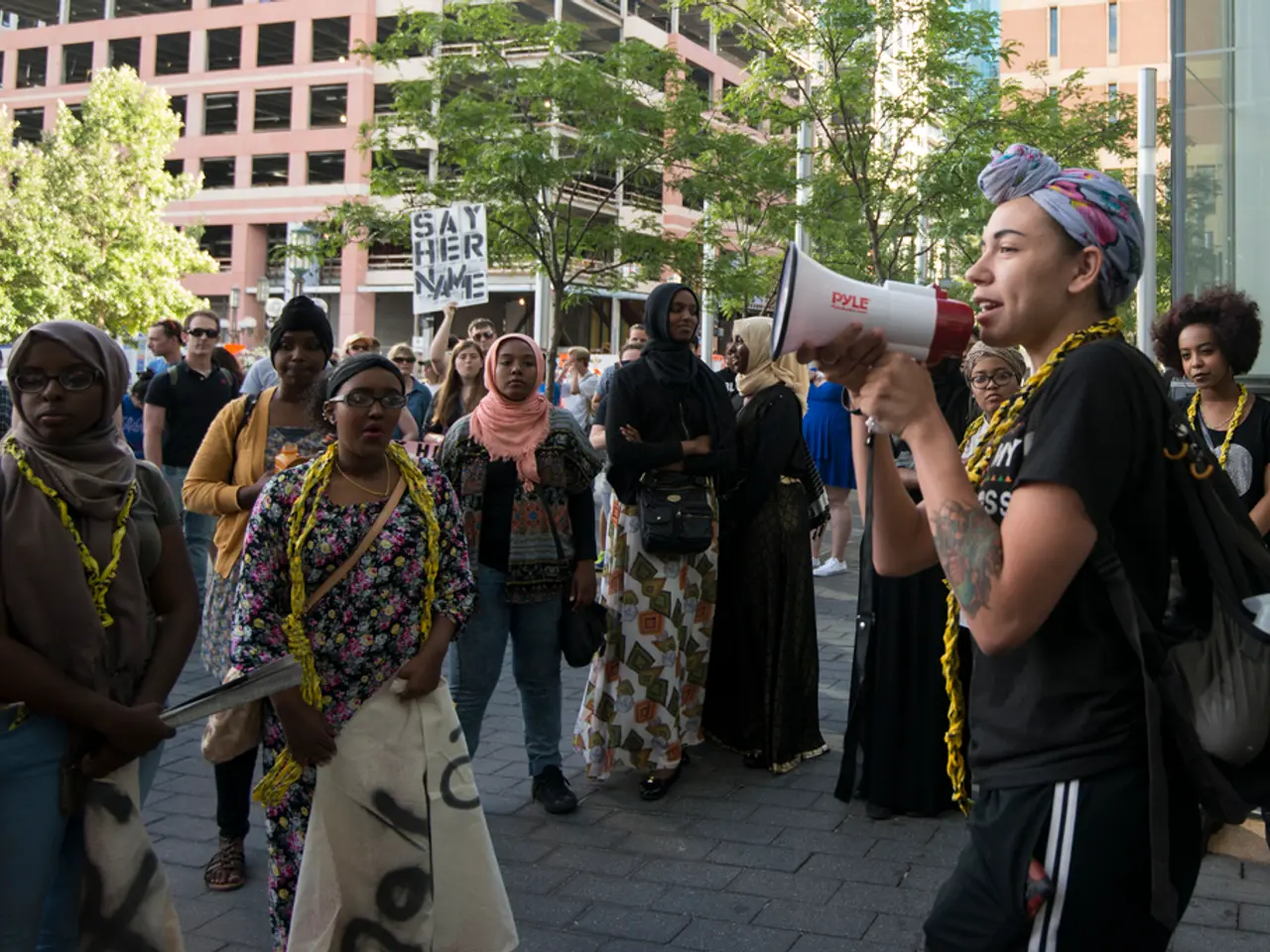International Community Criticizes Persistent Discrimination Against Women in Afghanistan
In a resolution adopted last week, the United Nations has expressed deep concern over the Taliban's institutionalized system of discrimination and exclusion of women and girls in Afghanistan. This follows the Taliban's recognition as the country's official government by Russia.
The Taliban, a strictly conservative Islamist armed group that ruled Afghanistan between 1996 and 2001 and regained control in 2021, has dismantled legal protections and institutional frameworks that previously supported women and girls, effectively stripping them of fundamental rights.
Under Taliban rule, women face severe restrictions on education, employment, legal recourse, and freedom of movement. The Taliban's misogynistic ideology is enforced through the justice system, making it nearly impossible for women to challenge abuses or access protection. UN experts describe the situation as a form of gender apartheid, with women subjected to widespread violence, forced marriages, trafficking, and exclusion from virtually all aspects of public life and power structures.
The resolution urges the Taliban to address laws that extend already intolerable restrictions on the human rights of women and girls and on basic personal freedoms for all Afghans. It also calls for the appointment of a UN Secretary General Antonio Guterres coordinator to facilitate the Doha talks process, initiated in 2023 by the UN, to coordinate the international community's approach to the Taliban authorities.
The global community has largely condemned the Taliban's treatment of women. The United Nations Human Rights Council and the Committee on the Elimination of Discrimination against Women have publicly denounced the Taliban's gender policies as violations of international law and crimes against humanity. In July 2025, the U.N. General Assembly adopted a resolution with 116 countries in favour, including major Western and many other nations, while the U.S. and Israel opposed, calling on the Taliban to reverse their oppressive measures against women and girls.
However, some countries, like Russia, have formally recognized the Taliban government, complicating the international response and raising concerns about legitimizing the regime despite its human rights record. Efforts to bypass Taliban restrictions, such as promoting education via technology, have been discussed but remain challenging given the Taliban's control and hostility toward women's rights projects.
The Biden administration and prior U.S. policies have also affected support structures for Afghan women, with aid cutbacks and legal protections for Afghan refugees in the U.S. being revoked in recent years, worsening conditions for many Afghans.
US representative Jonathan Shrier stated, "Nearly four years following the Taliban takeover, we continue the same conversations and engage with the same so-called Taliban officials about improving the situation in Afghanistan without demanding results from them." The United States opposed the UN resolution and rejected engagement with the Taliban government, with the US representative also saying, "The United States will no longer enable their heinous behavior."
In summary, under Taliban rule, women in Afghanistan face institutionalized gender oppression that violates fundamental human rights, and while the international community vehemently opposes these policies and seeks to pressure the Taliban to change, practical progress remains limited amidst geopolitical complexities and Taliban resistance.
- The United States, along with Israel, publicly opposed a UN resolution in July 2025, calling on the Taliban to reverse their oppressive measures against women and girls in Afghanistan.
- Despite international condemnation of the Taliban's treatment of women, Russia formally recognized the Taliban government, complicating the international response and raising concerns about legitimizing the regime.
- Science advancements in health-and-wellness, such as promoting education via technology, have been discussed as a means to bypass Taliban restrictions and support Afghan women, but remain challenging due to the Taliban's control and hostility towards women's rights projects.
- General news headlines often feature reports on the ongoing political tensions between the international community, particularly Western nations, and the Taliban, centering around the Taliban's institutionalized discrimination against women and girls in Afghanistan.
- Women's health, including access to education, employment, and legal recourse, is significantly impacted by the Taliban's institutionalized system of discrimination and exclusion, a concern highlighted by the UN in a recent resolution regarding the situation in Afghanistan.




